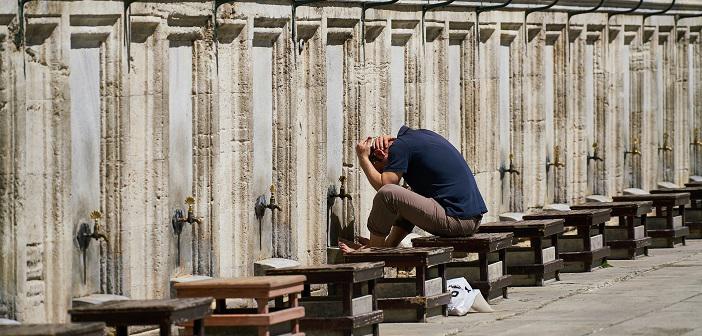Is there a difference among schools of ıslamic law in terms of the fardh acts of minor ablution/wudu?
According to Hanafis, the fardh acts of ablution are, as stated in the Holy Qur’an (Ma’idah, 5/6), as follows: to wash face, to wash lower arms up to the elbows, to wipe over the head, and to wash feet including the ankles (Mawsili, al-Ikhtiyar, I, 40-42).
According to Shafi’is, in addition to these obligatory acts, intention and tartib (following the same sequence mentioned in the Qur’an while washing the organs) are also fardh acts. (Shirbini, Mughni’l-muhtaj, I, 85-95)
As for the Hanbalis, following the order mentioned in the verse about ablution (tartib) (Ma’idah, 5/6) and in one view doing all the acts of ablution continuously without giving a break (muwalat) are fardh acts (Ibn Qudamah, al-Mughni, I, 189, 191); and Maliki acept obligatory to rub the limbs besides intention and muwalat (Harasi, Sharhu Mukhtasar, I, 120).
There are also some differences between schools on the details of the agreed fardh acts of ablution. According to Hanbalis, washing face includes taking water into mouth and drawing water into the nose (Ibn Qudamah, al-Mughni, I, 166). Likewise, according to the view preferred by both Malikis and Hanbalis, wiping the entire head is within the scope of the obligatory wiping of the head. (Ibn Qudamah, al-Mughni, I, 175-176; Harasi, Sharhu Mukhtasar, I, 124-125).
Source: Presidency Of Religious Affairs The Turkey, High Board of Religious Affairs FATWAS




